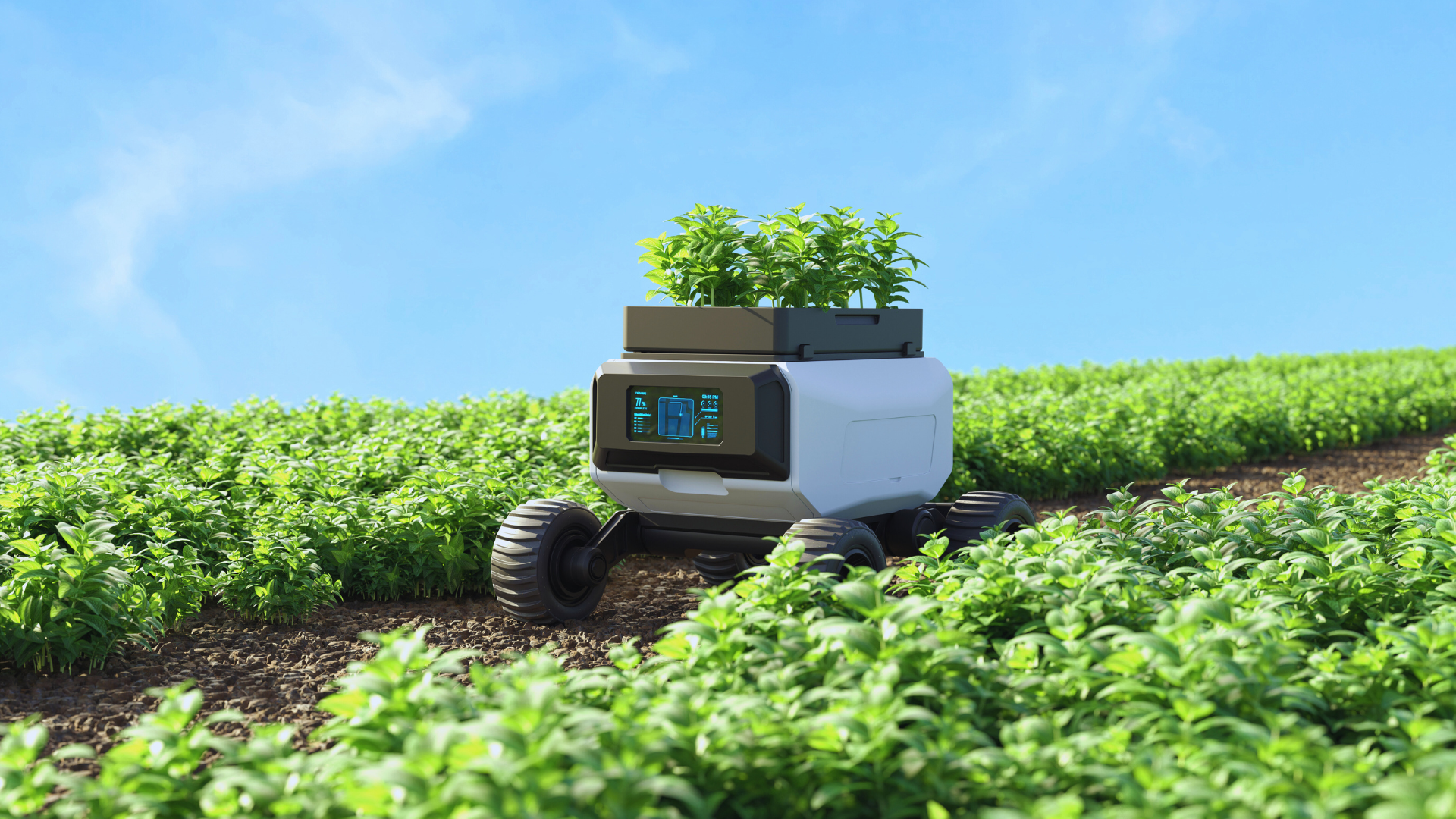

The convergence of artificial intelligence and organic agriculture presents exciting opportunities for farmers and consumers alike. AI technologies enable farmers to enhance crop management, improve yield predictions, and promote sustainable practices without compromising the principles of organic farming. This intersection not only supports environmental health but also addresses the growing demand for organic produce.
By employing data-driven insights, AI can assist in monitoring soil health and predicting pest outbreaks. Farmers can utilize machine learning algorithms to analyze vast amounts of agricultural data, leading to improved decision-making and resource utilization. The integration of these technologies allows for precision agriculture that aligns with organic methodologies.
This synergy between AI and organic agriculture is reshaping how food is produced and consumed. As more farmers adopt these innovations, the potential to create a more sustainable and efficient food system becomes increasingly apparent. Understanding this relationship is essential for anyone interested in the future of farming.
The Role of Artificial Intelligence in Organic Agriculture
Artificial intelligence is reshaping organic agriculture by enhancing efficiency and sustainability. It enables farmers to adopt modern farming practices that align with organic principles, facilitating better crop management and precision farming techniques.
Key Applications of AI in Modern Farming Practices
AI plays a crucial role in various aspects of organic farming. It assists in developing predictive models that aid in decision-making processes related to planting and harvesting.
Farmers utilize AI-driven tools for:
- Soil analysis: Sensors gather data on soil health, allowing informed decisions on crop selection and nutrient requirements.
- Pest detection: AI can identify pest infestations early, enabling timely interventions that minimize pesticide use.
These applications lead to improved yields while adhering to organic farming standards.
Machine Intelligence for Precision Farming
Machine intelligence enhances precision farming, which focuses on optimizing field-level management regarding crop farming. Technologies such as drones and autonomous vehicles equipped with AI algorithms can monitor crop conditions efficiently.
Key technologies include:
- Drones: Provide aerial imagery for assessing crop health and identifying problem areas.
- Automated irrigation systems: Adjust water supply based on real-time data from sensors.
Through these methods, farmers can reduce resource waste and maintain the integrity of organic practices.
Data Analytics Driving Crop Management
Data analytics offers deep insights into crop management strategies in organic agriculture. By analyzing historical data and real-time inputs, farmers can make informed decisions that improve productivity while following organic standards.
Analytics can support:
- Yield prediction: Analyzing previous yields allows farmers to forecast outcomes more accurately.
- Resource allocation: Assessing the effectiveness of water and nutrient applications helps optimize inputs.
Employing these data-driven strategies aids in maintaining sustainable practices without compromising crop quality. This integration of analytics significantly enriches organic agricultural methods.
Synergies Between Advanced Technologies and Sustainable Agriculture
Advanced technologies significantly enhance sustainable agriculture by improving efficiency and minimizing environmental impacts. Key innovations such as precision agriculture, AI solutions, and automation contribute to more sustainable practices in organic farming.
Precision Agriculture for Enhanced Environmental Impact
Precision agriculture focuses on optimizing field-level management regarding crop farming. It uses GPS, IoT sensors, and data analytics to monitor and manage variables such as soil conditions and weather patterns.
This approach enables farmers to apply resources more efficiently. For example, targeted irrigation reduces water consumption, while precise fertilization minimizes runoff and nutrient loss. By leveraging these tools, farmers can enhance yield while decreasing their environmental footprint.
Maintaining those efficiency gains often depends on uninterrupted power for sensors, automated irrigation and cold storage; when grid outages occur, temporary solutions can keep systems and data collection running without disruption. In regions with harsh weather or unstable supply, many operations turn to local providers for short-term units that are sized for farm equipment and sensitive electronics. For farms near Edmonton, a reliable generator rentals company Edmonton can provide eco-friendly, professionally maintained options and guidance on matching capacity to load. Including contingency power in planning ensures AI-driven tools and precision systems continue to deliver benefits even during outages.
AI-Powered Agtech Solutions
AI-powered agtech solutions analyze vast amounts of data to provide actionable insights for farming practices. These technologies can predict pest outbreaks, recommend crop rotations, and optimize planting schedules based on environmental data.
By integrating machine learning algorithms, farmers can enhance decision-making processes. This leads to more informed choices that promote sustainable practices. AI also assists in monitoring soil health and promoting biodiversity through tailored interventions.
Robotics and Automation in Organic Farming
Robotics and automation play a crucial role in organic farming by streamlining labor-intensive tasks. Automated systems can handle sowing, weeding, and harvesting, significantly reducing the reliance on manual labor.
These technologies help achieve consistent crop quality and minimize physical strain on workers. Moreover, automation aligns with organic principles by reducing chemical inputs, as robots can selectively remove pests without harming beneficial insects. This shift towards automation marks a vital step towards achieving sustainability in agricultural practices.
Real-World Success Stories and Regional Insights
Examples of AI applications in organic agriculture illustrate their impactful integration into farming practices. Success stories provide valuable insights into how farmers are leveraging technology for efficiency and sustainability.
Case Study: John Deere’s AI Innovations
John Deere has made significant strides in AI innovation within agriculture. Their use of machine learning algorithms helps analyze field data, optimizing planting and harvesting schedules.
Farmers using John Deere’s technology report cost savings of up to 20% due to improved resource allocation. Advanced sensors gather real-time data on soil conditions, enabling responsive adjustments.
This proactive approach enhances yield and reduces waste, showcasing the benefits of AI in mechanized farming.
Pest Control and Predictive Analytics in Action
Predictive analytics is revolutionizing pest control strategies. Systems like IBM’s Watson are analyzing data from various sources, including weather patterns and crop health metrics. These tools provide farmers with actionable insights, enabling timely interventions.
For example, farmers can predict pest outbreaks, reducing pesticide use by up to 30%. Alternatively, they can consult certified pest control professionals to execute data-driven strategies and protect crops effectively. For instance, if predictive analytics signals a potential honeybee infestation near key crop zones, professional services can deploy solutions for bee removal Phoenix (or elsewhere) to safeguard both the harvest and the surrounding ecosystem.
Such AI-driven decisions not only protect crops but also promote organic practices, minimizing chemical dependencies.
Sustainable Farming Practices in Oregon
Oregon is a leader in integrating AI into sustainable farming. Local farmers utilize AI to implement precision agriculture techniques that monitor water usage and soil health.
This fine-tuned approach leads to efficient irrigation practices that can save up to 50% of water resources. Sensors collect data, which helps in managing crop rotation sustainably.
Farmers also track organic certification requirements through AI, streamlining compliance. This enhances the region’s reputation for sustainable farming and supports local ecosystems.
